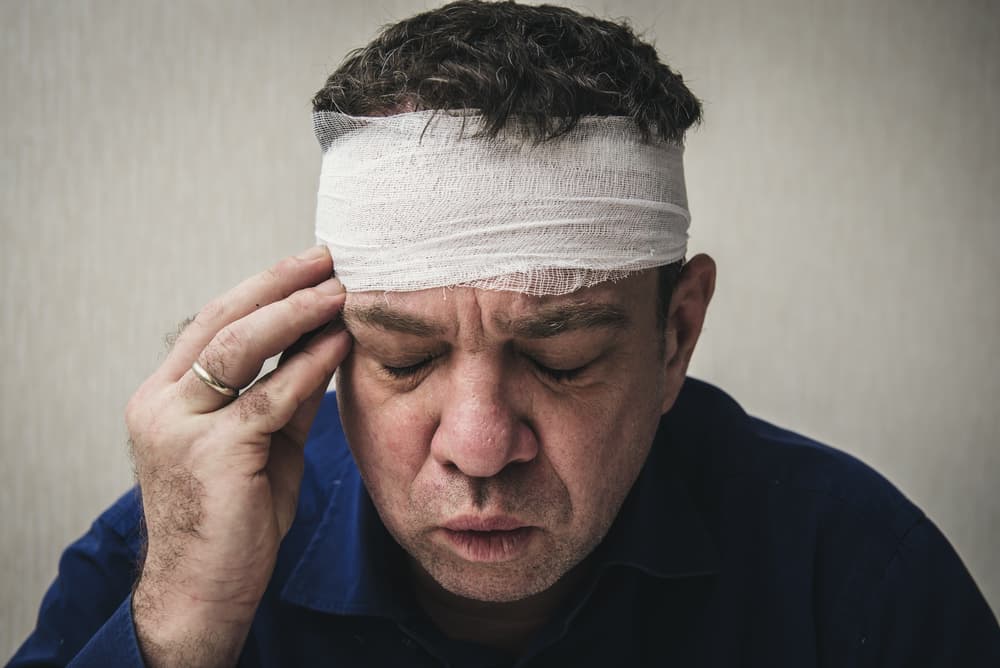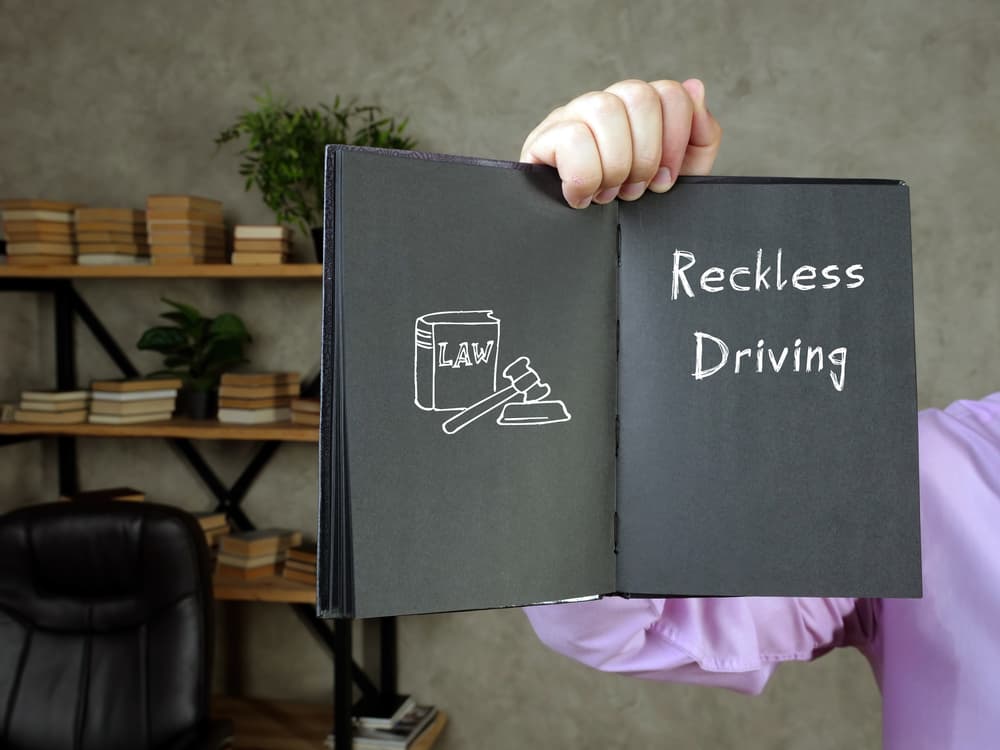A head injury is one of the most serious types of injuries that an accident victim can suffer. Not only can head injury victims suffer intense pain and suffering, but they may also experience ongoing cognitive impairments that may affect them for the rest of their lives.
If you or a person you love recently suffered a head injury in an accident that resulted from another individual or entity's negligent behavior, then you should consult a personal injury lawyer in your area right away about your legal options.
In a head injury case, a skilled and compassionate personal injury lawyer can be an invaluable help. First, your lawyer can investigate the circumstances of your accident and determine your claim-filing eligibility.
Additionally, your lawyer can investigate the circumstances of your accident and retain experts in your case, such as a certified accident reconstructionist and/or a neurologist or other medical expert.
Once your attorney files a personal injury claim on your behalf with the appropriate insurance company, he or she can begin negotiating for you and pursuing the full monetary recovery you deserve.
If the insurance company refuses to make a fair monetary settlement offer, your lawyer may pursue personal injury litigation on your behalf.
During litigation, your attorney can represent you during all legal proceedings and work to maximize the total monetary award you receive for your injuries.
Throughout every step of the process, your attorney will be on your side, fighting aggressively for your legal rights and interests and pursuing the full compensation you are entitled to receive for your head injuries.
Schedule a Free Initial Consultation Today!
Accidents That Can Lead to a Head Injury
In many instances, head injuries occur when other individuals and entities behave negligently or irresponsibly.
As a result of the occurrence, the accident victim may strike their head on something, such as a motor vehicle component or the ground. Additionally, another object may strike the accident victim's head with significant force, resulting in a serious injury.
Some of the most common types of accidents that may cause a victim to strike their head and incur severe damages include:
- Car and truck accidents
- Slip and fall accidents
- Motorcycle and bicycle collisions
- Pedestrian accidents
- Bus and other mass transit accidents
- Escalator and elevator accidents (especially those that involve a slip and fall)
- Medical negligence and malpractice
- Ship and boat accidents
- Swimming pool accidents,
- Workplace accidents, especially those that occur on a building or construction site.
In any of these scenarios, accident victims may suffer several different types of head injuries, including ongoing migraines, concussions, post-concussive migraine syndrome, or comas.
As a result of these head injuries, accident victims may experience several painful, ongoing symptoms, including head pain, short and long-term memory losses, nausea, dizziness, fatigue, and unresponsiveness.
In fact, in the most serious head injury cases, an accident victim may wind up in a permanent vegetative state, relying on life support for survival.
If you sustained a head injury in one of these occurrences, consult an experienced personal injury attorney in your area right away.
Your attorney can review all your legal options with you, file a personal injury claim on your behalf, and pursue the financial compensation you need and deserve for your loss.
Specifically, your attorney can handle all written and oral communications with insurance company adjusters regarding settlement compensation or, if necessary, litigate your case to a resolution in the court.
Seeking Medical Treatment for a Head Injury
In addition to seeking an experienced personal injury attorney to assist with your case, your top priority following a head injury should be obtaining ongoing medical treatment.
For example, you may first need to go to a hospital emergency room and seek follow-up treatment from a medical provider or a medical specialist, such as a neurologist. A specialist may prescribe additional treatment for you, including medication, pain management, or surgery.
During this time, you should focus on your medical treatment, refrain from missing appointments, and avoid substantial gaps in your medical treatment. Otherwise, the insurance company may become skeptical about your injuries and refuse to make you a fair monetary settlement offer. They may also allege that your injuries are pre-existing or that they are otherwise unrelated to the subject occurrence.
A skilled personal injury lawyer in your area can retain the experts necessary to satisfy your complete legal burden of proof. That way, you may receive various types of monetary compensation, either through settlement or a favorable litigation result in the court system.
Your attorney can also gather your medical bills, medical treatment records, police reports, and other documentation that may later serve as evidence in your head injury case.
Once you have reached your maximum medical improvement or know the future treatment you will need, your lawyer can begin negotiating on your behalf and will keep you aware of any new settlement offers in your personal injury case.
Proving a Head Injury Case
To receive monetary compensation for a head injury that you suffered in an accident, you must demonstrate the legal elements of your personal injury claim or lawsuit. First, you must show that the at-fault individual or entity who caused your accident ultimately owed you a duty of reasonable care.
For instance, if you suffered your head injury in a slip and fall accident that occurred on someone else's property, you must demonstrate that you were lawfully present on the property at the time that your accident happened.
You must also show that the property owner owed you a duty of reasonable care to properly warn about or repair the dangerous hazard that ultimately caused your head injury.
Similarly, if you suffered a head injury in a motor vehicle accident, such as by striking your head on the steering wheel, window, or headrest, you must demonstrate that the driver owed you a duty of reasonable care to drive carefully, safely, and following all applicable traffic laws.
Additionally, you must establish that the at-fault individual or entity violated or breached their legal duty of care. For example, in a slip and fall accident, the at-fault property owner might have failed to clean up a spill on the floor within a reasonable time, creating a fall hazard.
Similarly, in a motor vehicle accident scenario, the adult driver might have violated one or more traffic laws, such as by engaging in distracted driving or operating a vehicle while under the influence of drugs or alcohol.
Next, the accident victim must show that as a direct result of the other party's negligence, the accident and their head injury occurred.
Head injuries can be difficult to prove in a personal injury case, and they often require testimony from a medical expert or treating healthcare provider. A medical expert, such as a neurologist, may first physically examine the accident victim and draft a report stating the likely cause of the head injury.
Additionally, a medical expert can describe the types of ongoing symptoms the accident victim may suffer going forward and how long they might last. This expert opinion provides an objective perspective regarding your condition and prognosis for the insurance company to consider. This often minimizes the doubt insurers have in your account of your injury and symptoms.
Filing a Head Injury Insurance Claim
By filing a personal injury claim with the responsible party's insurance company, your attorney can pursue the maximum compensation you deserve to recover for your head injury.
To file a claim, your lawyer will first gather certain documents, including copies of incident reports, police reports, medical bills, medical treatment records, imaging reports, and property damage photos.
Your attorney can assemble all this documentation into a single settlement demand package for the insurance company adjuster to review.
Insurance companies will look for any available excuse to undervalue a head injury claim or deny liability for an accident altogether.
After all, insurance companies want to save themselves as much money as possible, and they cannot accomplish this goal if they have to pay out a high monetary settlement or jury verdict in a personal injury case.
Therefore, the insurance company adjuster may argue that the accident victim is exaggerating their symptoms or that their head injury is otherwise unrelated to the subject occurrence.
A skilled personal injury lawyer on your side, however, can pursue the monetary compensation you deserve by highlighting the strengths of your case, including medical reports and expert testimony. They may also threaten the insurance company with a personal injury lawsuit if the adjuster refuses to compensate you fairly for your head injury.
Your attorney can determine whether a particular insurance company settlement offer in a head injury case is a good offer, given the extent of your injuries and the circumstances surrounding your accident. Therefore, you will have the information you need when deciding whether to accept a pending insurance company settlement offer or to litigate your case in the court system.
Filing a Head Injury Lawsuit in the Court System
If the insurance company refuses to offer you a fair monetary settlement, your personal injury lawyer can begin the litigation process by filing a lawsuit on your behalf.
During litigation, the parties will:
- Exchange answers to written questions during discovery
- Submit to a deposition
- Attend a mediation session or settlement conference with the court
- Either settle their case out of court or take it to a civil jury trial or alternative dispute resolution proceeding, such as arbitration or mediation.
If you take your case to a trial or ADR proceeding, your attorney can introduce evidence on your behalf, call favorable witnesses to testify in support of your case, and make convincing arguments on your behalf. They will handle the entire process.
Pursuing Favorable Monetary Damages in a Head Injury Case
Accident victims who suffer head injuries can recover various types of monetary compensation depending on the severity of their head injury and whether it is permanent. In general, the more severe an accident victim's head injury and the more expensive their medical treatment, the higher the monetary compensation they can receive through settlement or litigation.
First, a head injury victim may recover damages for their medical expenses and lost earnings. Moreover, they may receive compensation for their intangible losses, including monetary damages for mental distress, loss of spousal consortium, permanent disability or disfigurement, past and future pain and suffering, loss of use of a body part, lost quality of life, inconvenience, and long-term or lifetime care costs.
A qualified personal injury lawyer in your jurisdiction can determine which monetary damages apply to your case. Your attorney can then take all the necessary legal steps to maximize your overall monetary award and obtain the full financial recovery you deserve.
Call an Experienced Personal Injury Lawyer Today About Your Legal Matter
Accident victims who suffer head injuries often have painful symptoms and significant medical bills. In addition, a head injury may result in permanent cognitive impairments that affect every aspect of the accident victim's life and well-being.
Fortunately, a head injury victim may be eligible to file a personal injury claim or lawsuit against potentially responsible individuals or entities who caused their accident.
Under the state statute of limitations, an accident victim must file a personal injury lawsuit within three years of their accident date. Unless some exceptional circumstance applies, if the accident victim fails to file a timely lawsuit in their case, they cannot receive any monetary recovery for their injuries. Therefore, if you suffered a head injury in a recent accident, act right away to secure your right to financial compensation.

A skilled head injury lawyer in your jurisdiction can promptly investigate your accident circumstances, gather important documents to prove your case, and file a claim with the insurance company handling your claim.
Next, your lawyer can handle all settlement negotiations for you and push for a higher settlement number from the insurance company adjuster. If that does not happen, your attorney can represent you in all litigation proceedings and pursue the maximum compensation you deserve to recover for your debilitating head injury.





